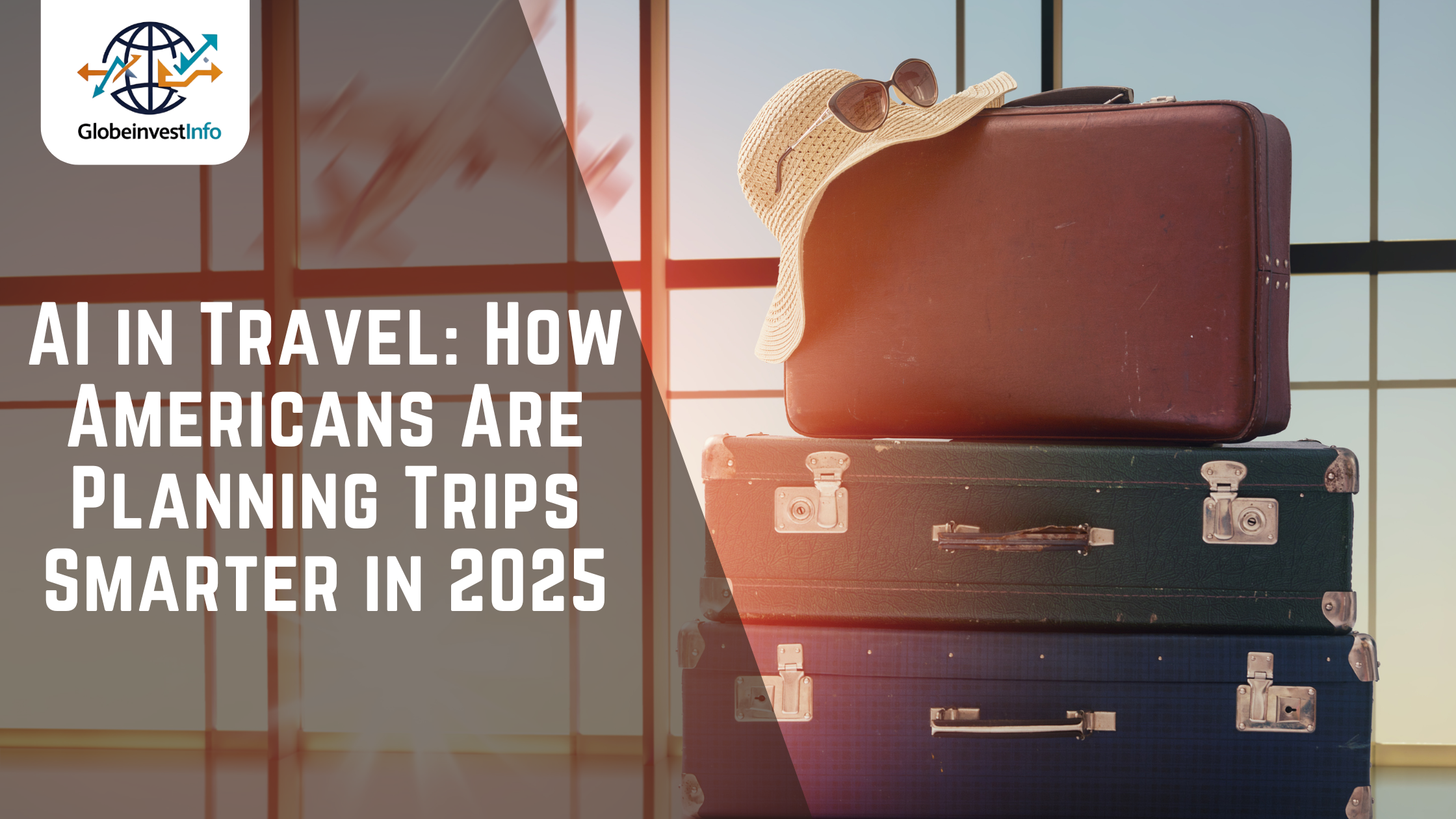Travel has always been exciting, but planning a trip can be stressful. Between searching for flights, finding hotels, and organizing itineraries, many Americans spend hours trying to plan the perfect vacation. In 2025, artificial intelligence (AI) is making travel easier, faster, and more personalized.
AI is now part of almost every stage of travel—from booking flights to choosing restaurants at your destination. For US travelers, this means smarter planning, better deals, and more enjoyable experiences. Here’s how AI is changing the way Americans travel in 2025.
1. AI-Powered Travel Planning Apps
Platforms like Hopper and TripIt use AI to organize travel details and suggest the best times to book.
Why travelers love them:
- Predicts flight and hotel prices.
- Sends alerts when prices drop.
- Organizes tickets, reservations, and itineraries in one place.
For Americans juggling work and family schedules, AI apps save time and reduce stress when planning trips.
2. Smart Flight and Hotel Price Predictions
Nobody likes overpaying for flights or hotels. AI tools like Google Flights and Kayak analyze historical data and trends to predict future prices.
Benefits:
- Tells travelers when to book for the best deals.
- Helps avoid last-minute price spikes.
- Provides transparency in pricing.
This feature is especially useful for families planning vacations months in advance.
3. Virtual Travel Assistants and Chatbots
Airlines and travel companies now use AI chatbots like Amelia and Booking.com’s AI assistant to answer traveler questions instantly.
Why it helps:
- Provides 24/7 support.
- Handles bookings, cancellations, and rebookings.
- Reduces long wait times with call centers.
For US travelers facing delays or cancellations, AI assistants provide quick solutions on the go.
4. Personalized Itineraries
AI apps like Utrip and Roamaround create custom itineraries based on traveler interests, budgets, and schedules.
Why it’s useful:
- Suggests restaurants, attractions, and activities.
- Adapts itineraries to weather or time constraints.
- Saves hours of manual research.
Whether it’s a solo trip or a family vacation, AI makes travel planning more personal and enjoyable.
5. AI in Customer Service for Airlines and Hotels
Customer service in travel is often frustrating. AI is improving this with platforms like Zendesk AI and LivePerson.
Advantages:
- Handles common traveler requests instantly.
- Speeds up hotel check-ins and upgrades.
- Improves communication between guests and service staff.
This makes travel experiences smoother for both American business and leisure travelers.
6. Language Translation for Global Travelers
Traveling abroad can be intimidating due to language barriers. AI tools like Google Translate and iTranslate provide real-time translation for conversations, menus, and signs.
Why it matters:
- Breaks down communication barriers.
- Makes international travel more accessible.
- Provides voice and text translations instantly.
For Americans exploring foreign countries, AI makes communication easier and less stressful.
7. Safety and Travel Security
AI also helps keep travelers safe. Apps like Sitata use AI to provide real-time safety alerts, travel restrictions, and health warnings.
Benefits:
- Warns travelers about disruptions or risks.
- Suggests safer routes or alternatives.
- Provides emergency support during trips.
This is particularly helpful for solo travelers or those visiting unfamiliar destinations.
Want to learn more about how AI is reshaping industries across the US? Check out our article on AI for Business.
FAQs
Q1: Are AI travel apps free to use?
Yes. Many apps like Google Flights and TripIt have free versions. Premium upgrades are available for advanced features.
Q2: Can AI guarantee the cheapest travel deals?
Not always, but AI tools provide highly accurate predictions that help travelers book at the right time.
Q3: Are AI chatbots reliable for solving travel issues?
Yes. They handle most common problems quickly, though complex cases may still require human support.
Q4: Can AI help with last-minute travel planning?
Yes. AI apps like Hopper and Kayak can suggest quick bookings and even optimize itineraries on short notice.
Q5: Is AI safe for handling travel data?
Most established platforms use secure systems, but travelers should always use trusted apps and websites.
Conclusion
AI is transforming how Americans plan and experience travel in 2025. From booking smarter with price predictions to creating personalized itineraries and breaking down language barriers, AI tools are making trips easier and more enjoyable.
For US travelers, the result is less stress, more savings, and richer travel experiences. As AI continues to advance, it’s set to become an even bigger part of how we explore the world.

